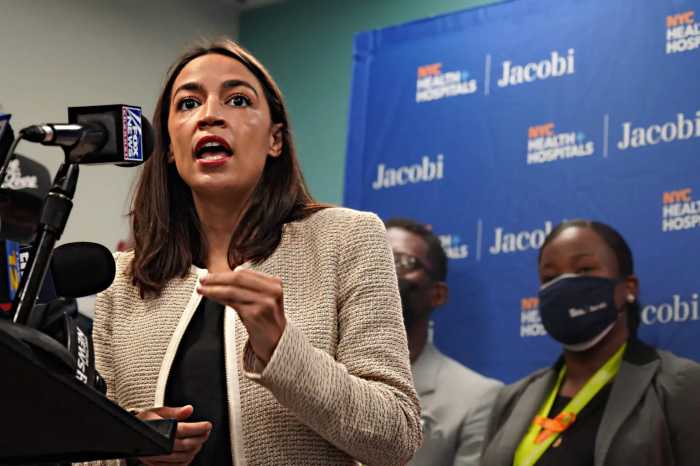Following a spring uptick, mpox cases decreased in back-to-back months in New York City — but now cases are rising again.
New York City saw 41 cases of mpox in August, an increase over the 33 cases reported in July. There were 36 cases in June.
The August caseload was the highest in New York City since May, when there were 43 cases. In March and April, there were more than 50 cases per month.
The majority of the cases in New York City in August were among queer men, a city health official told Gay City News.
The city updates its numbers on the second Thursday of every month. The limited available data for September shows a total of five cases through the first seven days of this month.
The New York City cases are part of the same strain, Clade II, that has been circulating since the 2022 mpox outbreak that primarily affected men who have sex with men. A deadlier strain, Clade I, has been spreading in central African countries, though none of those cases have been identified in the United States to this point.
The central African outbreak prompted the World Health Organization to declare mpox a global health emergency. Dr. Ashwin Vasan, New York City’s health commissioner, welcomed that declaration, saying in a mid-August press statement that the affected countries in this outbreak deserve to receive the resources they need to halt the spread.
Vasan said New Yorkers must ensure they finish the full two-dose regimen of the Jynneos vaccine, which is administered 28 days apart. The vaccine protects against both Clade I and Clade II.
“In New York City, we continue to emphasize the importance of vaccination and encourage anyone at risk who has not done so to get vaccinated now,” Vasan said in the Aug. 15 statement. “Two doses are needed for maximum protection, so anyone who did not get their second dose should do so immediately. We also encourage everyone to educate themselves and to explore our resources on what to know and how to protect yourself from mpox. Preparation and information are the antidotes to fear and inertia, so rest assured we are prepared and we will continue to keep New Yorkers informed about the risk of mpox in our city.”
Completing both doses of the vaccine has proven to be a key challenge because many individuals have yet to return for their second dose. The city Health Department issued yet another reminder to New Yorkers in a Sept. 11 post on X, saying, “Attention New Yorkers: You should get a second dose of the mpox vaccine at least 28 days after your first dose. It’s important to get the second dose regardless of the amount of time that has passed since the first dose.”
In an effort to drive up vaccination numbers, New York State Health Commissioner James McDonald signed an order earlier this month allowing pharmacists in the state to administer the mpox vaccine without requiring a prescription. Mpox has not been spreading in other parts of the state outside of New York City, according to state health data. The rest of the state has had less than a dozen cases since the beginning of the summer.
The city declared an end to the mpox outbreak in February of 2023 — and in the first nine months of 2023, the city saw between two and 20 cases during a given month. But this spring, the city issued an advisory to medical providers warning that there was a “substantial” increase in mpox cases dating back to October of last year, with 256 cases between that time and April of 2024.
According to the Centers for Disease Control and Prevention, the mpox vaccine is recommended if you had known or suspected exposure to someone with mpox; had a sex partner in the last two weeks who was diagnosed with mpox; you are a gay, bisexual, or other man who has sex with men or a transgender, non-binary, or gender-diverse person who has had an STI or multiple sex partners in the last six month; you’ve had sex at a sex club or bathhouse; or if you are at risk for occupational exposure, such as if you work at a healthcare facility or a laboratory.
New Yorkers can visit vaccinefinder.nyc.gov to search for locations to get the vaccine.




































